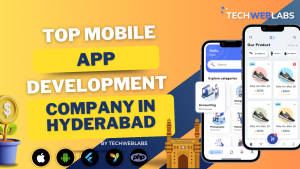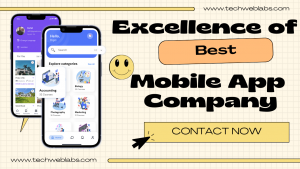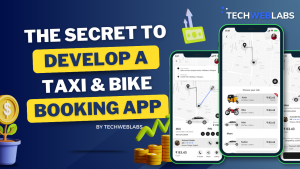Transforming User Experience: The Latest Mobile App Trends
In today’s digital era, mobile apps have become an integral part of our lives, transforming the way we communicate, work, and engage with businesses. As technology continues to advance, mobile app development is at the forefront of innovation, driving enhanced user experiences and paving the way for new opportunities. In this article, we will explore the latest trends shaping the mobile app landscape and how businesses can leverage them to stay ahead of the curve.
Introduction: Embracing the Mobile Revolution
Mobile apps have revolutionized the way we interact with technology, providing convenience, personalization, and instant access to information and services. They have become an essential tool for businesses to connect with their audience and drive growth. In this article, we will delve into the key trends in mobile app development and how they are revolutionizing user experiences.
Importance of Mobile Apps: Enhancing Business Growth and User Engagement
Mobile apps have become a necessity for businesses of all sizes and industries. They offer a range of benefits, including improved customer engagement, enhanced brand visibility, increased revenue opportunities, and streamlined business processes. With mobile apps, businesses can connect with their target audience on a personal level, provide tailored experiences, and stay ahead in the competitive market.
Key Trends in Mobile App Development
1. Integration of AI and Machine Learning: Delivering Personalized Experiences
AI and machine learning are transforming mobile apps, enabling them to understand user preferences, provide personalized recommendations, and automate tasks. From virtual assistants to predictive analytics, AI-powered mobile apps are revolutionizing the way users interact with technology.
2. Internet of Things (IoT) Integration: Connecting Devices for Seamless Interactions
The IoT is expanding the possibilities for mobile app development by enabling the connection of devices and creating a seamless ecosystem. From smart homes to wearable devices, mobile apps can now interact with a range of connected devices, enhancing user experiences and enabling control over various aspects of daily life.
3. Augmented Reality (AR) and Virtual Reality (VR): Immersive Experiences
AR and VR technologies are revolutionizing mobile app experiences by providing immersive and interactive elements. From gaming and entertainment to education and training, AR and VR mobile apps are transforming the way users perceive and engage with digital content.
4. Voice User Interfaces (VUI): Simplifying Interactions through Voice Commands
Voice-controlled mobile apps are becoming increasingly popular, allowing users to interact with their devices and perform tasks using natural language commands. With voice user interfaces, mobile apps offer hands-free and intuitive interactions, making them accessible and convenient for users.
5. Chatbots and Conversational Interfaces: Enhancing Customer Support
Chatbots and conversational interfaces are revolutionizing customer support by providing instant and personalized assistance. Mobile apps can now integrate chatbot functionalities to offer real-time support, answer user queries, and provide personalized recommendations.
6. Edge Computing: Faster and Real-time Data Processing
Edge computing brings computation and data storage closer to the source of data generation, resulting in faster response times and reduced latency. Mobile apps leveraging edge computing can process data in real-time, enabling faster interactions and enhanced user experiences.
7. Cloud Integration: Scalability and Accessibility
Cloud integration allows mobile apps to store and access data securely, scale resources as needed, and provide seamless synchronization across devices. With cloud-powered mobile apps, users can access their data from anywhere, ensuring a consistent experience across multiple devices.
8. Beacon Technology: Location-based Interactions
Beacon technology enables mobile apps to interact with physical locations and deliver personalized experiences based on a user’s proximity to a specific location. Mobile apps can leverage beacons to provide location-based recommendations, notifications, and offers, enhancing user engagement.
9. Instant Apps: Lightweight and On-demand Experiences
Instant apps provide a seamless and frictionless user experience by allowing users to access specific features or functionalities of an app without the need for installation. With instant apps, users can try out an app before committing to download, resulting in increased user engagement and higher conversion rates.
10. Progressive Web Apps (PWAs): App-like Experiences on the Web
PWAs combine the best of both web and mobile app experiences, providing app-like functionalities and offline capabilities within a web browser. PWAs offer the convenience of web accessibility while delivering a seamless and engaging user experience similar to native mobile apps.
11. Microinteractions: Delighting Users with Subtle Animations
Microinteractions are small, subtle animations and feedback that occur within mobile apps. These interactions enhance user engagement, provide visual cues, and create a sense of delight and satisfaction. From button animations to loading indicators, microinteractions contribute to a more enjoyable and intuitive user experience.
12. Social Media Integration: Seamless Sharing and Connectivity
Mobile apps that seamlessly integrate with social media platforms enable users to share content, invite friends, and connect with their social networks. Social media integration enhances user engagement, expands reach, and drives organic growth through social sharing.
13. App Security: Safeguarding User Data and Privacy
With the increasing importance of data security and privacy, mobile apps must prioritize robust security measures. From secure login mechanisms to encrypted data storage, ensuring the protection of user data is crucial for building trust and maintaining app credibility.
How TechWebLabs Helps Build Mobile Applications
At TechWebLabs, we understand the significance of mobile app development in today’s competitive landscape. With our team of experienced developers and designers, we offer end-to-end solutions that cater to diverse business needs. Whether you’re looking for a native iOS or Android app, cross-platform development with Flutter or React Native, or a progressive web app (PWA), we have the expertise to bring your vision to life.
Our development team is skilled in various technologies, including iOS, Android, Flutter, React Native, and PWA development. We take a customized approach, understanding your specific requirements and industry standards to deliver tailored solutions. Our team emphasizes user-centric design, creating engaging interfaces and intuitive user experiences that keep users coming back for more.
Using an agile development approach, we ensure transparency, regular updates, and collaboration throughout the project lifecycle. We believe in delivering high-quality products, and our robust testing and quality assurance processes ensure app performance and reliability.
At TechWebLabs, we don’t just stop at development. We provide post-launch support and maintenance to ensure your app remains stable, secure, and up to date with the latest technologies and industry standards.
When it comes to costing, we offer competitive pricing models that align with your budget and project requirements. We believe in delivering value for our clients, combining quality and affordability to drive business growth.
To learn more about how TechWebLabs can help you build a mobile application that meets your needs, visit our website techweblabs.com and explore our portfolio.


